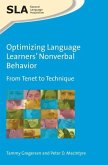Language Change
Herausgeber: Mauranen, Anna; Vetchinnikova, Svetlana
Language Change
Herausgeber: Mauranen, Anna; Vetchinnikova, Svetlana
- Gebundenes Buch
- Merkliste
- Auf die Merkliste
- Bewerten Bewerten
- Teilen
- Produkt teilen
- Produkterinnerung
- Produkterinnerung
Bringing together multiple strands of linguistics, this book explores the impact of English as a lingua franca on language change.
Andere Kunden interessierten sich auch für
![Studying Language in Interaction Studying Language in Interaction]() Betsy RymesStudying Language in Interaction160,99 €
Betsy RymesStudying Language in Interaction160,99 €![Routledge Handbook of Technological Advances in Researching Language Learning Routledge Handbook of Technological Advances in Researching Language Learning]() Routledge Handbook of Technological Advances in Researching Language Learning279,99 €
Routledge Handbook of Technological Advances in Researching Language Learning279,99 €![The Routledge Handbook of Language Teacher Action Research The Routledge Handbook of Language Teacher Action Research]() The Routledge Handbook of Language Teacher Action Research291,99 €
The Routledge Handbook of Language Teacher Action Research291,99 €![Neoliberalism and Applied Linguistics Neoliberalism and Applied Linguistics]() David BlockNeoliberalism and Applied Linguistics185,99 €
David BlockNeoliberalism and Applied Linguistics185,99 €![Corpus Linguistics for Writing Development Corpus Linguistics for Writing Development]() Philip DurrantCorpus Linguistics for Writing Development160,99 €
Philip DurrantCorpus Linguistics for Writing Development160,99 €![Optimizing Language Learners' Nonverbal Behavior Optimizing Language Learners' Nonverbal Behavior]() Tammy GregersenOptimizing Language Learners' Nonverbal Behavior179,99 €
Tammy GregersenOptimizing Language Learners' Nonverbal Behavior179,99 €![Categories in Social Interaction Categories in Social Interaction]() Kevin A WhiteheadCategories in Social Interaction180,99 €
Kevin A WhiteheadCategories in Social Interaction180,99 €-
-
-
Bringing together multiple strands of linguistics, this book explores the impact of English as a lingua franca on language change.
Hinweis: Dieser Artikel kann nur an eine deutsche Lieferadresse ausgeliefert werden.
Hinweis: Dieser Artikel kann nur an eine deutsche Lieferadresse ausgeliefert werden.
Produktdetails
- Produktdetails
- Verlag: Cambridge University Press
- Seitenzahl: 350
- Erscheinungstermin: 3. Dezember 2020
- Englisch
- Abmessung: 232mm x 153mm x 28mm
- Gewicht: 670g
- ISBN-13: 9781108492850
- ISBN-10: 1108492851
- Artikelnr.: 59642363
- Herstellerkennzeichnung
- Libri GmbH
- Europaallee 1
- 36244 Bad Hersfeld
- gpsr@libri.de
- Verlag: Cambridge University Press
- Seitenzahl: 350
- Erscheinungstermin: 3. Dezember 2020
- Englisch
- Abmessung: 232mm x 153mm x 28mm
- Gewicht: 670g
- ISBN-13: 9781108492850
- ISBN-10: 1108492851
- Artikelnr.: 59642363
- Herstellerkennzeichnung
- Libri GmbH
- Europaallee 1
- 36244 Bad Hersfeld
- gpsr@libri.de
Introduction. Dynamics of change from different perspectives and on
different scales Anna Mauranen and Svetlana Vetchinnikova; Part I. Pooling
Perspectives: Introduction Anna Mauranen; 1. Calling Englishes as complex
dynamic systems: diffusion and restructuring Edgar W. Schneider; 2. English
as a lingua franca in the context of a sociolinguistic typology of contact
languages William Croft; 3. How writing changes language Ewa D¿browska; 4.
ELF and translation as language contact Anna Mauranen; 5. Present-day
standard English: whose language was it anyway? Terttu Nevalainen; 6. ELF
and the study of sociolinguistic change Janus Mortensen; Part II. Zooming
in on ELF: Introduction Svetlana Vetchinnikova; 7. ELF, language change and
social networks: evidence from real-time social media data Mikko Laitinen
and Jonas Lundberg; 8. ELF and language change at the individual level
Svetlana Vetchinnikova and Turo Hiltunen; 9. Are multilinguals the better
academic ELF users? Evidence from a questionnaire study measuring
self-assessed proficiencies Peter Siemund and Jessica Terese Mueller; 10.
The role of co-textual and contextual cues for intelligibility in ELF
interactions Veronika Thir; 11. Exploring the pragmatics of
computer-mediated English as a lingua franca communication: multimodal and
multilingual practices Rino Bosso; 12. Development of shared multilingual
resources in ELF dyadic interaction: a longitudinal case study Aki Siegel;
13. The role of translanguaging in ELF advice sessions for asylum seekers
Alessia Cogo.
different scales Anna Mauranen and Svetlana Vetchinnikova; Part I. Pooling
Perspectives: Introduction Anna Mauranen; 1. Calling Englishes as complex
dynamic systems: diffusion and restructuring Edgar W. Schneider; 2. English
as a lingua franca in the context of a sociolinguistic typology of contact
languages William Croft; 3. How writing changes language Ewa D¿browska; 4.
ELF and translation as language contact Anna Mauranen; 5. Present-day
standard English: whose language was it anyway? Terttu Nevalainen; 6. ELF
and the study of sociolinguistic change Janus Mortensen; Part II. Zooming
in on ELF: Introduction Svetlana Vetchinnikova; 7. ELF, language change and
social networks: evidence from real-time social media data Mikko Laitinen
and Jonas Lundberg; 8. ELF and language change at the individual level
Svetlana Vetchinnikova and Turo Hiltunen; 9. Are multilinguals the better
academic ELF users? Evidence from a questionnaire study measuring
self-assessed proficiencies Peter Siemund and Jessica Terese Mueller; 10.
The role of co-textual and contextual cues for intelligibility in ELF
interactions Veronika Thir; 11. Exploring the pragmatics of
computer-mediated English as a lingua franca communication: multimodal and
multilingual practices Rino Bosso; 12. Development of shared multilingual
resources in ELF dyadic interaction: a longitudinal case study Aki Siegel;
13. The role of translanguaging in ELF advice sessions for asylum seekers
Alessia Cogo.
Introduction. Dynamics of change from different perspectives and on
different scales Anna Mauranen and Svetlana Vetchinnikova; Part I. Pooling
Perspectives: Introduction Anna Mauranen; 1. Calling Englishes as complex
dynamic systems: diffusion and restructuring Edgar W. Schneider; 2. English
as a lingua franca in the context of a sociolinguistic typology of contact
languages William Croft; 3. How writing changes language Ewa D¿browska; 4.
ELF and translation as language contact Anna Mauranen; 5. Present-day
standard English: whose language was it anyway? Terttu Nevalainen; 6. ELF
and the study of sociolinguistic change Janus Mortensen; Part II. Zooming
in on ELF: Introduction Svetlana Vetchinnikova; 7. ELF, language change and
social networks: evidence from real-time social media data Mikko Laitinen
and Jonas Lundberg; 8. ELF and language change at the individual level
Svetlana Vetchinnikova and Turo Hiltunen; 9. Are multilinguals the better
academic ELF users? Evidence from a questionnaire study measuring
self-assessed proficiencies Peter Siemund and Jessica Terese Mueller; 10.
The role of co-textual and contextual cues for intelligibility in ELF
interactions Veronika Thir; 11. Exploring the pragmatics of
computer-mediated English as a lingua franca communication: multimodal and
multilingual practices Rino Bosso; 12. Development of shared multilingual
resources in ELF dyadic interaction: a longitudinal case study Aki Siegel;
13. The role of translanguaging in ELF advice sessions for asylum seekers
Alessia Cogo.
different scales Anna Mauranen and Svetlana Vetchinnikova; Part I. Pooling
Perspectives: Introduction Anna Mauranen; 1. Calling Englishes as complex
dynamic systems: diffusion and restructuring Edgar W. Schneider; 2. English
as a lingua franca in the context of a sociolinguistic typology of contact
languages William Croft; 3. How writing changes language Ewa D¿browska; 4.
ELF and translation as language contact Anna Mauranen; 5. Present-day
standard English: whose language was it anyway? Terttu Nevalainen; 6. ELF
and the study of sociolinguistic change Janus Mortensen; Part II. Zooming
in on ELF: Introduction Svetlana Vetchinnikova; 7. ELF, language change and
social networks: evidence from real-time social media data Mikko Laitinen
and Jonas Lundberg; 8. ELF and language change at the individual level
Svetlana Vetchinnikova and Turo Hiltunen; 9. Are multilinguals the better
academic ELF users? Evidence from a questionnaire study measuring
self-assessed proficiencies Peter Siemund and Jessica Terese Mueller; 10.
The role of co-textual and contextual cues for intelligibility in ELF
interactions Veronika Thir; 11. Exploring the pragmatics of
computer-mediated English as a lingua franca communication: multimodal and
multilingual practices Rino Bosso; 12. Development of shared multilingual
resources in ELF dyadic interaction: a longitudinal case study Aki Siegel;
13. The role of translanguaging in ELF advice sessions for asylum seekers
Alessia Cogo.








